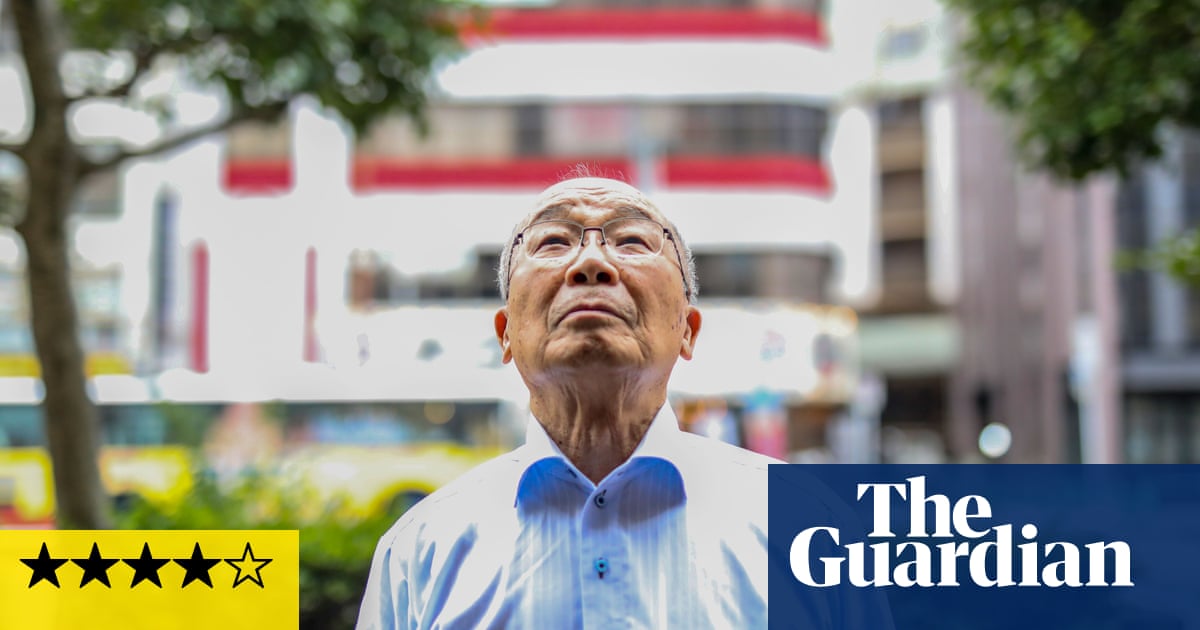The survivors of the nuclear bombs dropped by the US on Hiroshima and Nagasaki are known as “hibakusha”. Atomic People marries interviews with a handful of them – all octogenarians at least, most in their 90s, a few who have marked their centenaries – with contemporary footage of President Harry Truman lauding the Manhattan Project’s achievement and the burnt and blistered bodies in the streets of the Japanese cities to create a deeply moving, quietly devastating film.
Survivors were told, from the off, not to speak of their experiences. First, by the occupying allied forces who moved in after Japan surrendered in the face of this new weapon and banned reporting on the bombs’ effects. Later, by their friends, families and wider culture as survival became stigmatised. The hibakusha’s blood was thought to be tainted, as exposure to radiation took its toll on survivors and on many of their subsequent children, who were born disfigured or were miscarried before they could be born at all. No one wanted them to marry into their families.
What is most immediately striking about the witness accounts is that fictionalised versions in films, television series and books have done nothing but record the truth. There was nowhere worse for the imagination to go than the reality.
Shigeaki, who was eight in 1945, remembers a young woman swaying as she walked towards the child and asked: “Where is the hospital?” while clutching her spilling organs. Chieko, then 15, recalls students gathering at a school with what looked like long strands of seaweed hanging from their waists. It was the skin of their legs peeling off. “They died one after the next,” she says. Chieko’s teacher ordered her to help dig a pit to bury them. Another remembers people with their eyeballs dangling down their faces and a mother clutching a baby “burned black as stone” as the flesh melted off her own back. Hideo, three at the time, remembers charred bodies still standing, hanging from the straps of an incinerated tram.
These stories are given the space they need, but the documentary does not forget the other parts of survivors’ lives. The interviewer asks her subjects to close their eyes and remember what it was like before the bombs dropped: “What do you see?” Most answer with their eyes still closed, remembering sneaking out to the cinema, or staying by the sea all day in summer, “playing constantly”.
Their memories of the silver shimmer of the B-29 against a clear blue sky evoke our own of 9/11. But the scale of the devastation shown by archive footage of the blasted cities remains unparalleled. Some of the hundreds of thousands who died left what look like shadows on the buildings that remained standing. Most did not. They died without a trace.
In the years after the bomb, the stigma accrued. Relationships and marriages were forged amid lies and half truths. One hibakusha couple decided eventually that the risks were too great to have children: “But sometimes I think if I hadn’t thought too much about it, I might have chosen to have children.” Another woman describes losing her adult son to leukemia, which took so many of the next generation. Which suffering do you choose?
after newsletter promotion
It seems impossible that such an event could ever have been celebrated, but Truman’s address to the US after Hiroshima is unmistakably triumphal. “We have spent $2bn on the greatest scientific gamble in history – and won … If they do not now accept our terms, they may expect a rain of ruin from the air, the like of which has never been seen on this Earth.”
Atomic People does not mark a major anniversary. It is simply that time is running out for the long-silent survivors to tell their stories, to have them heard and to let them function – insofar as is possible in this war-ravaged world – as a warning from history. It may also let the storytellers find some peace. “I want to forget the memories that are inside my body, but they won’t let me,” says one. The central blast zone in Hiroshima is now a memorial park, full of oleander trees and cicadas. One survivor says the noise of the insects always sounds to her like the voices of the dying who begged her for help and water.
I don’t know what you do with all this pain and terrible knowledge. The entire world lives with it, in some sense. To see it concentrated in the minds and etched on the faces of those who were there is almost unbearable. But they are asking us not to look away. If we do, there will surely be more silver shimmers in bright blue skies.
